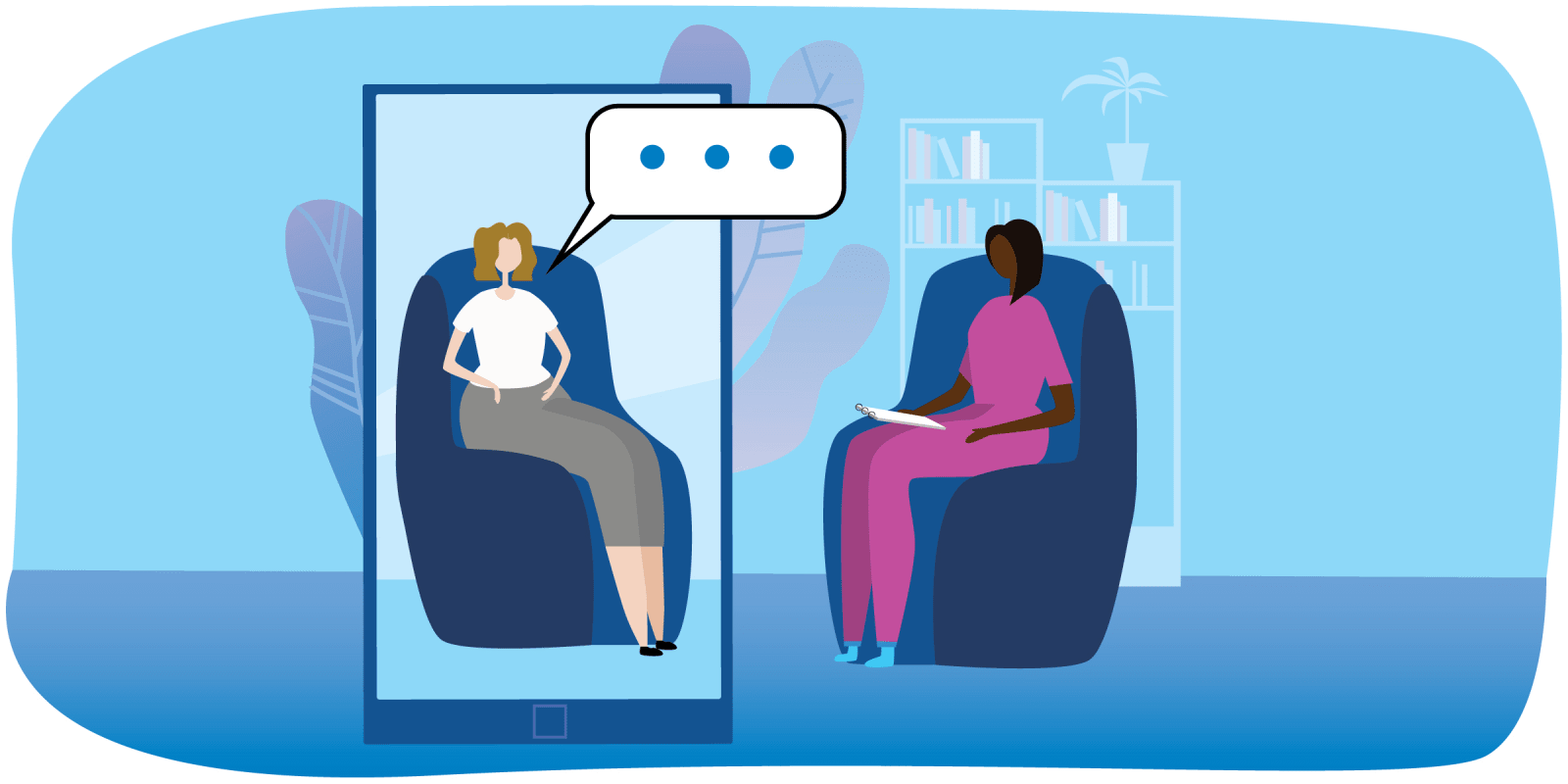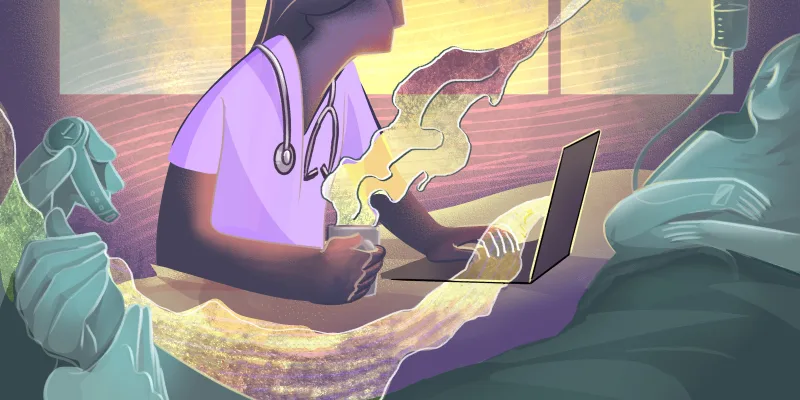This year’s annual conference for the American College of Asthma, Allergy, and Immunology (ACAAI) was unique. The college meeting occurred on an online platform rather than in person in Phoenix, Arizona. Many of the sessions were previously recorded, while some were live from the comfort and safety of the presenters’ homes with question-and-answer sessions done in real-time. The topics covered at this conference addressed more than just the most current information in the field of allergy and immunology, but also discussions on ideas salient to our rapidly changing world, such as telemedicine, racial and ethnic disparities, and the COVID-19 pandemic. Though, something that struck me as odd as I sipped my coffee in my living room and watched a session on COVID-19 and strategies to help both clinicians and patients was the inclusion of the Assistant Professor in the Psychiatry Department at Washington University, Dr. Jessi Gold.
Physicians are used to trauma. We train for years to better understand concepts like breaking bad news and how to better understand how to be empathetic to our patients and their families during some of the most difficult times of their lives. This is a unique time as both clinicians and patients are going through the same shared trauma of a global pandemic and the subsequent upheaval of our lives into something that does not at all resemble what they were but a short year ago. Dr. Gold addressed something I think is not talked about in medicine enough, “It’s OK not to be OK.”
Some of the data Dr. Gold presented included staggering statistics on changes in depression in the general population before and after the pandemic. In June, the CDC released statistics that in the last 30 days, 26% of 18- to 24-year-olds had suicidal thoughts. In unpaid caregivers of parents, this number was even higher at 31%. In health care workers, the numbers were also staggering at 21%. She went on to indicate that, in a Canadian survey of new mothers in the first year, postpartum depression increased from 15% to 41%, and anxiety increased from 29% to 72%. It was clear to me from these numbers that this crisis of mental health was much worse than I had thought.
Beyond these numbers, Dr. Gold presented that health care workers, due to their exposure to COVID-19, were extremely likely to suffer from depression, anxiety, insomnia, the feeling of loneliness, and that three out of four of health care workers were highly distressed with fears of transmission of COVID to family and friends as well as by the need to keep social distance. However, 61% of providers did feel an increased sense of purpose since the COVID-19 outbreak. While we are trying to manage this crisis the mental health crisis may be affected us disproportionately.
Depression, burnout, suicide, and substance use are not new topics for health care providers. Recently, training programs have been required to integrate education about these topics in order to help better address them before they become a problem. Health care providers also may have some unique barriers to mental health care. According to data from the last decade, 60% of medical professionals did not seek care; they were worried about it affecting their medical license. These concerns are not unwarranted. Thirty nursing boards still ask applicants about mental illness, twenty-two of these boards’ questions were not in compliance with the Americans with Disabilities Act . For physicians, only 1/3 of states have questions on initial and renewal medical license paperwork that would be deemed appropriate. What I took away from this data is that health care workers don’t address their mental health because we’re in a system that discourages them from doing so.
So what can we do about this problem? Dr. Gold gave us invaluable tools to help identify these problems in ourselves, and our patients early, and to take actions. Things like coping mechanisms, self-care, hope and self-efficacy, practicing self-compassion as well as vulnerability. A point she made at the end of her presentation I thought was very important, “There is no wrong time for a patient to get help.” I think this applies to our patients but also to all of us going through the trauma of a global pandemic coupled with an increase in mental health issues and social isolation.
This year we missed out of lots of things we love about the ACAAI meeting. We were unable to gives hugs to and get drinks with our friends and faculty from training. We were unable to come together in one place physically with like-minded individuals that share many of the same passions. Yet still, the College did an incredible job of bringing together these speakers in a different way to keep us informed and updated. The inclusion of mental health as a major topic at this year’s college I think was important for so many different reasons. Hopefully by including this topic and continuing to include it at future meetings we can work to increase access to mental health care for health care professionals and for our patients and to de-stigmatize obtaining care. We can only take care of our patients when we also take care of ourselves.
Vincent Devlin, DO, MHS, is an Allergist/Immunologist at Miller Children’s and Women’s Hospital and the Translational Pulmonary and Immunology Research Center in Long Beach, CA.







